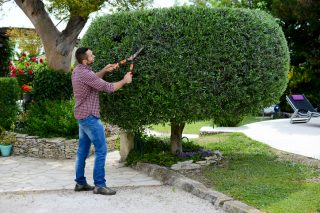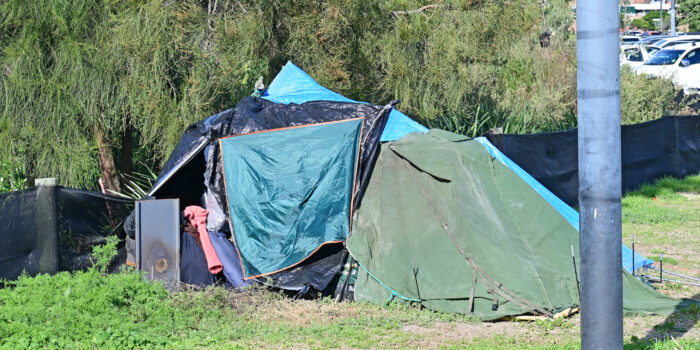A Corinda resident has succeeded in obtaining an order against his neighbour for the pruning of trees near the boundary because of the prospect of them causing substantial ongoing and unreasonable interference with its use and enjoyment.

The lawsuit by Kenneth Sowden against tree-owners Clyde & Wendy Winzar concerned 5 trees on or near their common boundary.
Queensland Civil and Administrative Tribunal member Peta Stilgoe ordered a 19 m (high) x 18m (spread) leopard tree be subject to “comprehensive pruning every two years” and further trims to ensure that foliage was at least 2.5 m clear of the surface of Sowden’s driveway.
She declined his request that the Winzars lop the tree so all foliage remained on their side, because of its “high amenity value”
Sowden could nevertheless have removed all the overhanging limbs above 2.5 m himself; or used the formal resolution process under part 4 of the Neighbourhood Disputes (Dividing Fences and Trees) Act (NDDFTA) which would have allowed him – had the Winzars refused to comply – to get a contractor in to remove them at the their expense, up to a maximum of $300. And he could repeat that process every 12months.
As to the 24 m x 12 m tallowwood with “high local and ecological values”, the tribunal appointed arborist recommended the removal of “lateral limbs” that extended over Sowden’s land, taking the branches back to behind the boundary line.
Noting the tallowwood’s “contribution to the local ecosystem”, judge Stilgoe ruled it was “worth saving” but to the extent it presented risks to Sowden’s property, it should be pruned at the Winzar’s expense as recomended.
Sowden sought to recover his costs associated with the filing etc of the application. The tribunal noted the matter was not complex and “it could not be said that Sowden’s case was so strong that Mr and Mrs Winzar were wrong to resist it.” Accordingly Sowden was ordered to pay his own costs of the proceedings.
Sowden v Winzar [2015] QCAT 068 Senior Member Stilgoe OAM 02/03/2015





